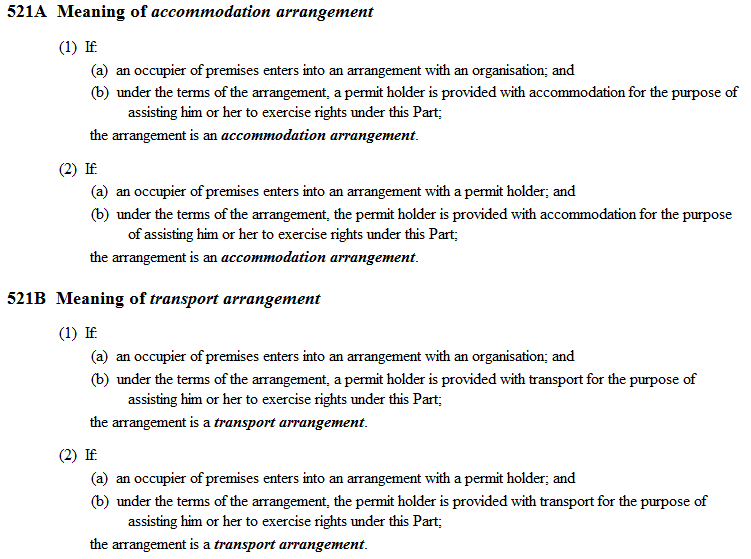Little or no workplace protections, no social security safety net and a nebulous commitment to short term on-the-job training appear to be the order of the day for young men and women who join Abbott's Green Army.
A ''green army'' of 15,000 young people will be paid as little as half the minimum wage, as fresh details emerge of the federal government's plan to create Australia's largest environmental workforce.
The plans have attracted the ire of the ACTU, which says the workers will be excluded from protections granted by federal workplace laws and says the program threatens to reset youth wage rates sharply lower.
Under legislation introduced by Environment Minister Greg Hunt on Wednesday, green army participants - who will be aged 17 to 24 - will work up to 30 hours a week.
Young people who fill the green army's ranks will be paid about half the minimum wage, earning between $304.20 and $493.70 a week.....
38J Certain participants in Green Army Programme are not workers or employees under Commonwealth laws
(1) A person:
(a) who participates in the Green Army Programme on a full-time or a part-time basis and who is receiving green army allowance; or
(b) who participates in the Green Army Programme on a part-time basis and who is not receiving green army allowance;
is not taken to be:
(c) a worker carrying out work in any capacity for the Commonwealth, or an employee of the Commonwealth, for the purposes of the Work Health and Safety Act 2011; or
(d) an employee within the meaning of section 5 of the Safety, Rehabilitation and Compensation Act 1988; or
(e) an employee for the purposes of the Fair Work Act 2009;
merely because of that participation.
The Social Security Legislation (Green Army Programme) Amendment Bill 2014 amends the Social Security Act 1991 and the Social Security (Administration) Act 1999 to clarify social security arrangements for participants receiving the green army allowance paid under the Green Army Programme...
The Green Army is a key Coalition Government election commitment and will commence from July 2014. This voluntary initiative will recruit young people aged 17-24 years who are interested in protecting their local environment while gaining hands-on, practical skills, training and experience.
The Green Army will become Australia’s largest-ever environmental workforce, building to 15,000 participants by 2018, capable of delivering on-ground environmental projects...
The Programme will be delivered by an external Service Provider(s) who will be responsible for recruiting, establishing and managing Green Army Teams across Australia to engage in approved projects, alongside communities, to support local environment and heritage protection and restoration activities, consistent with regional, national and international priorities of the Government.
Participation in the Programme will be available to a diverse spectrum of young people, including Indigenous Australians, school leavers, gap year students, graduates and unemployed job seekers. Up to nine eligible participants and at least one Team Supervisor will constitute a Green Army Team. Participants will be eligible to receive a green army allowance while participating in the Programme, and will also have the opportunity to undertake training. The Service Provider(s) will be responsible for the disbursement of green army allowances and the provision of training. The Team Supervisor will be employed by the Service Provider and paid a wage.
Project proposals will be submitted to the Department of the Environment by individuals and organisations, such as local groups, councils and natural resource management bodies. A Green Army Project involves environmental and/or heritage activities that can be undertaken by a Green Army Team for 20-26 weeks.
The Programme will commence in 2014-15 with the rollout of 250 Green Army Projects and approximately 2,500 people undertaking on-the-ground environmental activities in the first financial year. By 30 June 2017, the Programme will have had 1,500 Green Army Projects and 15,000 placements undertaken. The Programme will scale up to 15,000 placements and 1,500 Projects per annum from 2018-19.
The Bill amends the Social Security Act 1991 and the Social Security (Administration) Act 1999 to specify that persons receiving a green army allowance under the Green Army Programme cannot also receive a social security benefit or social security pension and that a determination made in this regard may be backdated. The Bill does not impact entitlement to family assistance and child care payments which will remain payable to Green Army participants where eligible...
Unfortunately little of this information is reaching Northern Rivers readers of APN News & Media newspapers, as the two main mast heads are running what are essentially reworked versions of government media releases without any evaluation of their contents.

































